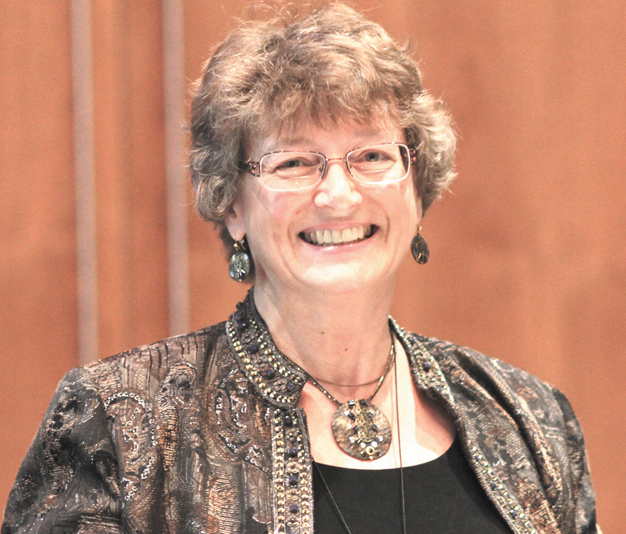Before the Torah

The Power of Stories Series
Jewish Family Education with Candace R. Kwiatek, The Dayton Jewish Observer
When growing up, Rabbi Eliyahu Safran writes, a friend often came to his home after school. They would do their homework, entertain themselves for a bit, and then have supper. Before leaving the table Eliyahu would always thank his mother for preparing and serving the meal. Mystified, his friend once asked, “Eliyahu, why do you always thank your mother after supper, every single time? Isn’t it her job to prepare supper for you?”
Four thousand years ago, Sumerian and Babylonian law codes were recorded in clay and stone. Although now fragmented and outdated, these ancient artifacts attest to the timeless need for some legislative guidelines on human behavior so that society can function.
The Law given to Moses at Sinai offered a new code built upon a similar premise, that a good society can only be built by people guided by divine law.
But is law enough? Some of the earliest stories in the Torah provide the answer. Abraham welcomed three strangers into his tent and provided shelter, food, and drink. When they left, Abraham accompanied them for some distance to see them off. Such conduct was guided not by law but by customs of hospitality.
The Philistines in Gerar where Isaac settled became envious of him, threatened by his success: a growing household, flocks and herds, and many enterprises. The local king, Abimelech, told Isaac to leave because “you are too mighty for us.” Isaac relocated nearby, opened old wells and dug new freshwater wells, but the Philistine herdsmen claimed, “The water is ours!”
Realizing he jeopardized both their dignity and their local resources, Isaac ultimately left the region. Not law, but respect for the people and their land guided Isaac’s choice.
Before leaving Midian for Egypt to lead the people out of slavery, Moses asked permission from his father-in-law, Jethro. After all, he had welcomed Moses, made him part of the family, and treated him with kindness. And if for no other reason, as head of the household, Jethro was due the respect of a formal request. Common decency, not law, guided Moses’ actions.
These and countless additional biblical vignettes illustrate the principle of derech eretz, the unofficial expectation of right or appropriate behavior described as “the way of the world.” The Talmud, Midrash, and modern commentators add hundreds of teachings that address derech eretz as common decency, consideration for others, or simply civilized behavior.
In everyday speech, derech eretz suggests courtesy, consideration, manners, and respect. In reality, however, it encompasses how we dress, behave, and speak; ethical and responsible living in relation to the earth; earning a living; and even intimacy between partners.
“It’s the way life works,” writes Rabbi Peretz Rodman. “You do what is right because that’s what you do, not because there’s a law or a commandment that obligates it. It’s the right way of being human.”
Jewish tradition teaches, “Derech eretz kadma l’Torah, derech eretz precedes the Torah.” Only when we act with derech eretz are we able to truly fulfill the mitzvot and realize the transcendent aspiration of Sinai. Look for this sublime quality in the following stories.
The Wedding. It was a beautiful wedding between the two distinguished families of Rav Auerbach and Rav Zalman in Tiberias, a primitive city in the 1950s. A now-famous local fish was served at the celebratory meal. Unfortunately the refrigeration had been inadequate, so when the fish was served it was spoiled. The entire meal had to be thrown out, and the guests were served some challah and dips. Nevertheless, the wedding was festive and joyous, filled with dancing, speeches, and much joy.
During the celebrations, Rav Auerbach slipped away to find the caterer, whom he thanked for his efforts and assured there was no ill will. “I will, of course, pay for the meal,” said Rav Auerbach. “Although my mechutan (in-law) and I had originally agreed to share the costs, I wanted to let you know that in case he does not want to pay for the spoiled food, I will cover his share.” The caterer smiled gratefully. “That’s very interesting,” he said. “Because just a few moments ago, your mechutan was here, and he told me the very same thing.”
The Blessing. A man once went to the great Rabbi Israel Abuhatzeira, the Baba Sali, to request a blessing for his son. In an effort to impress the rabbi, the man shared a story about his son’s clever answer to a difficult question in the Rambam. When the man had finished, the Baba Sali nodded and smiled in approval. The father beamed with pride, and the rabbi offered a heartfelt blessing for the son. When the man left, the Baba Sali’s son-in-law pointed out an error in the son’s interpretation, asking, “Why didn’t you say anything?” The Baba Sali responded, “This man was so happy and proud of his son. I should take away his happiness?”
The Law. En route to bake matzah before Passover, students of the renowned Rabbi Salanter contemplated the extensive Jewish legal requirements necessary to ensure the food would be kosher for the festival. When they asked their teacher which law they should most carefully observe, Rabbi Salanter responded: “An elderly widow works at the bakery. Be careful not to hurt her feelings.”
Before we can truly live a life guided by Torah, we must first become people of derech eretz. Maybe we could begin with a thank you for supper…and go from there.
Literature to share
Unstoppable: Siggi B. Wilzig’s Astonishing Journey from Auschwitz Survivor and Penniless Immigrant to Wall Street Legend by Joshua M. Greene. This astonishing story can be read as a character study, a Holocaust history, and a novel all wrapped up in a biography. Fast-paced vignettes offer glimpses of Siggi Wilzig’s early life during the Holocaust and eventual liberation. Earning a visa to America by helping the Americans in war-torn Europe, he started out in the U.S. by shoveling snow and working in sweatshops. Over the years he became prominent in the oil and banking industries, a founding member of a Holocaust museum, and the recipient of two honorary medals. A biography not to be missed by teens or adults.
Tia Fortuna’s New Home: A Jewish Cuban Journey by Ruth Behar. When Tia Fortuna decides to leave her seaside home in Miami to move into assisted living, she once again takes along the few treasures from her home in Cuba long ago. When her young niece visits, Tia Fortuna shares the story of the Jewish people who, always moving from place to place, “found hope wherever they went,” making homes filled with “family, tradition, and joy.” A special feature of this delightful tale is the inclusion of Spanish phrases and Sephardi (Spanish-Jewish) expressions. A wonderful introduction to Jewish history and Spanish culture along with a timeless message, this book is highly recommended for primary ages.
To read the complete March 2022 Dayton Jewish Observer, click here.



